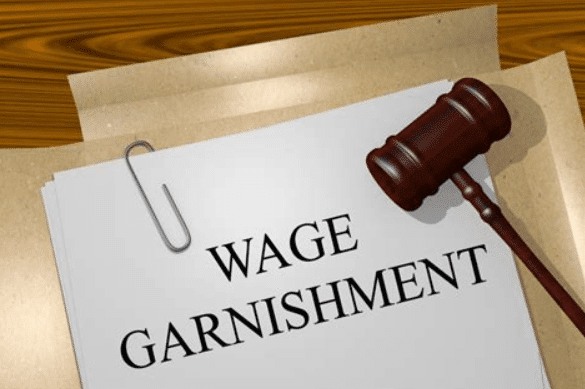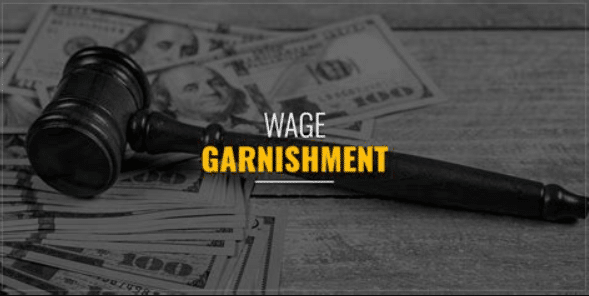Is a debt collector threatening to garnish your wages? Want to know how much they can take? Here’s your guide to garnishment limits by state.
In the event of a debt-related lawsuit resulting in a default judgment, wage garnishment may occur as a means to satisfy outstanding debts. This process entails a portion of your wages being redirected to the creditor. It’s essential to recognize that legal limits and regulations surrounding wage garnishment vary by jurisdiction.
Throughout the wage garnishment process, debtors retain certain rights. Notification of garnishment is mandated, and individuals have the opportunity to dispute the debt if they believe it is erroneous. Furthermore, it’s important to note that both social security and veteran benefits are exempt from wage garnishment.
While a single wage garnishment typically does not lead to termination, multiple garnishments may jeopardize employment. Understanding these rights and protections empowers individuals to navigate the wage garnishment process effectively while safeguarding their financial well-being.
Protect your wages from creditors by filing a response with ZumaZip.com
Guide to garnishment limits by state
Alabama
- Federal limits apply
Alaska
- Up to 25% of disposable weekly earnings.
- At least $350 of weekly net earnings
Arizona
- Federal limits apply
Arkansas
- Federal limits apply
California
- Federal limits apply
Colorado
- Federal limits apply
Connecticut
- 25% of your disposable earnings or the amount by which your weekly earning exceed 40 times the federal minimum wage ($7.25/hour) or the Connecticut minimum wage ($9.15/hour), whichever is less
Delaware
- Federal limits apply
- Only one wage garnishment permitted per individual
District of Columbia
- Garnishment is not allowed for anyone earning 40 times the D.C minimum wage ($15/hour) or less.
- Federal limits apply
- Only one wage garnishment permitted per individual
Florida
- Only one wage garnishment permitted per individual
- If disposable income is less than 30 times the federal minimum wage, your wages cannot be garnished.
- Florida Head of Family Exemption: If the head of a household and making less than $750 per week, wages cannot be garnished.
Georgia
- Federal limits apply
Don’t let debt collectors push you around. Respond with ZumaZip.com.
Hawaii
- Calculated based on monthly disposable income: 5% for the first $100, 10% on the next $100, 25% on all disposable income over $200 for one month.
Idaho
- Federal limits apply
Illinois
- Either 15% of gross wages or the amount of disposable income after deducting the Illinois minimum wage times 45.
Indiana
- Federal limits apply
- If an individual shows why the amount should be reduced, garnishment may be less than 25%
- Cannot be terminated for having multiple wage garnishments
Iowa
- Federal limits apply, however, the amount a single creditor can garnish in one year includes:
- Below $12,000/year: up to $250
- $12,000-$15,999: to $400
- $16,000-$23,999: up to $800
- $24,000-$34,999: up to $1500
- $35,000-$49,999; up to $2,000
- $50,000+: no more than 10% of wages.
- Cannot be terminated for having multiple wage garnishments
Kansas
- Federal limits apply
- Cannot be terminated for having multiple wage garnishments
Kentucky
- Federal limits apply
Louisiana
- Federal limits apply
Maine
- Less than 25% of an employee’s disposable income or disposable wages that are more than 40 times the state minimum wage ($11.00/hour).
- Cannot be terminated for having multiple wage garnishments
Maryland
- Federal limits apply in Queen Anne’s
- Cannot be terminated for having one wage garnishment per year
- Federal limits apply in Kent, Worcester, and Caroline counties
- In other countries, the lesser of 25% of the employee’s weekly disposable income or the amount by which the employee’s weekly disposable earnings exceed $145 can be garnished
- In Maryland, an employer cannot terminate an employee for a single garnishment in one calendar year.
Massachusetts
- Up to 15% of one’s gross wages or disposable income less than 50 times the federal minimum wage ($7.25/hour) or the Massachusetts minimum wage ($12.00/hour) per week (whichever is more)
Use ZumaZip.com to respond to a debt collection lawsuit in 15 minutes.
Michigan
- Federal limits apply
- Cannot be terminated for having multiple wage garnishments under Michigan law, but can be under federal law
Minnesota
- Federal limits apply
Mississippi
- Federal limits apply
- Cannot be terminated for having a wage garnishment for child support
- Wages cannot be garnished for the first 30 days after the court order is served
Missouri
- Federal limits apply
- Heads of the household are more protected
Montana
- If earnings are less than $217.50/week, wages cannot be garnished.
- If weekly disposable earnings are over $217.50 but under $290.00, only the amount above $217.50 can be garnished.
- If disposable earnings are over $290.00/week, no more than 25% can be garnished.
Nebraska
- Federal limits apply
Nevada
- The highest amount that can be garnished per week is less than 25% of an employee’s disposable income or the amount of their disposable earnings that exceed the federal minimum wage ($7.25/hour)
- Cannot be terminated for having multiple wage garnishments
New Hampshire
- Protects disposable earnings greater than 50 times the federal minimum wage ($7.25/hour or $362.50/week).
New Jersey
- Up to 10% of the employee’s income if they earn less than 250% of the federal poverty level for their household’s size or up to 25% if the individual earns more than 250% of the federal poverty level.
- Cannot be terminated for having multiple wage garnishments
New Mexico
- Less than 25% of disposable earnings or the amount by which weekly disposable earning exceed 40 times the federal minimum wage ($7.25/hour)
New York
- 10% of an employee’s gross wages or 25% of their disposable income that exceeds 30% of the minimum wage ($7.25/hour), whichever is lower.
- Income is less than 30 times the minimum wage, cannot be garnished.
North Carolina
- Federal limits apply except for garnishments by the North Carolina Department of Revenue, which limits to 10% of an employee’s gross wages
North Dakota
- Less than 25% of the employee’s disposable income or when weekly income exceeds 40 times the minimum wage ($7.25/hour)
Ohio
- Federal limits apply
- Cannot be terminated for having one wage garnishment per year, or because of child-support garnishment.
Make the right defense the right way with ZumaZip.com
Oklahoma
- Federal limits apply
- Cannot be terminated for having more than two wage garnishments in one year
Oregon
- Federal limits apply
- Cannot be terminated for having multiple wage garnishments
Pennsylvania
- Limits vary by type of debt owed
- Back rent: limited to 10%
- Child support up to 60%
- Student loans up to 15%
- Unpaid federal taxes depend on dependents and deductions
- Unpaid state taxes up to 10%.
Rhode Island
- 25% of the employee’s disposable income or if weekly disposable earnings exceed 30 times the federal minimum wage ($7.25/hour).
South Carolina
- Private parties are prohibited from garnishing for consumer debt
- Federal limits apply
- Cannot be terminated for having a consumer debt garnishment
South Dakota
- 20% of disposable earnings or if weekly disposable earnings exceed 40 times the federal minimum wage ($7.25/hour) (less $25/week for each dependent living with the employee for either one).
Tennessee
- 5% of weekly disposable income or disposable earnings exceed 30 times the federal minimum wage ($7.25/hour). An additional $2.50 per week for each dependent that lives in the state is protected
Texas
- Federal limits apply
- Cannot be terminated for having multiple wage garnishments
Utah
- 25% of weekly disposable earnings or disposable earnings exceed 30 times the federal minimum wage ($7.25/hour)
Vermont
- Less than 25% of disposable income (only 15% for consumer credit debts) or if disposable earnings exceed 30 times the minimum wage (40 times for consumer credit debts).
- Cannot be terminated for having disposable earnings garnished
Virginia
- 25% of weekly disposable earnings or if disposable earnings exceed 40 times the federal minimum wage ($7.25/hour)
Washington
- Less than 25% of an employee’s weekly disposable earnings or weekly disposable earnings exceeding 25 times the federal minimum wage ($7.25/hour)
- Cannot be terminated unless there are 3 or more wage garnishments in one year
West Virginia
- Less than 20% of the employee’s disposable earnings or if weekly earnings exceed 30 times the federal minimum wage ($7.25/hour).
- Cannot be terminated for having multiple wage garnishments
Wisconsin
- Wages cannot be garnished if the debtor has received any type of welfare benefits for the last six months
- Wages cannot be garnished if the household income is below the federal poverty line
- Wages cannot be garnished if 25% of earnings are already being garnished for child support
- Holder of a payday loan cannot have wages garnished
- Limits are 20% of the employee’s disposable earnings or if disposable earnings exceed 30 times the federal minimum wage ($7.25/hour).
- Cannot be terminated for having multiple wage garnishments unless they are served three or more garnishments within one year.
Wyoming
- Federal limits apply
- Cannot be terminated for having multiple wage garnishments
What is ZumaZip?
ZumaZip is a convenient solution designed to streamline your response to a debt collection lawsuit. Here’s a breakdown of what you can expect when you use ZumaZip:
Firstly, you’ll access our user-friendly web application, which guides you through the process step by step. You’ll be prompted to answer a series of questions related to your specific situation. Once you’ve completed the questionnaire, you have the option to either print out the finalized forms and mail them to the appropriate courts yourself, or you can opt to utilize ZumaZip’s services to file them on your behalf. Additionally, if you choose this option, an attorney will review your document for added peace of mind.
If you’re seeking guidance on how to effectively respond to a debt collection lawsuit, ZumaZip can provide the assistance you need. Feel free to explore our FAQs for more information on what ZumaZip has to offer.
What if I haven’t been sued yet?
If you’ve only received a collections notice, but not a lawsuit, the best way to respond is with a Debt Validation Letter. When a debt collector contacts you in any way, whether it’s by phone or mail, you can respond by formally requesting a debt validation with a Debt Validation Letter . This letter notifies the collector that you dispute the debt and forces them to provide proof you owe the debt. They can’t call you or continue collecting until they provide validation of the debt. This flowchart shows how you can use a Debt Validation Letter to win.
Get started with a Debt Validation Letter here.
How to Answer a Summons for debt collection in all 50 states
Here’s a list of guides on how to respond to a debt collection lawsuit in each state:
- Alabama
- Alaska
- Arizona
- Arkansas
- California
- Colorado
- Connecticut
- Delaware
- Florida
- Georgia
- Hawaii
- Idaho
- Illinois
- Indiana
- Iowa
- Kansas
- Kentucky
- Louisiana
- Maine
- Maryland
- Massachusetts
- Michigan
- Minnesota
- Mississippi
- Missouri
- Montana
- Nebraska
- Nevada
- New Hampshire
- New Jersey
- New Mexico
- New York
- North Carolina
- North Dakota
- Ohio
- Oklahoma
- Oregon
- Pennsylvania
- Rhode Island
- South Carolina
- South Dakota
- Tennessee
- Texas
- Utah
- Vermont; Vermont (Small Claims court)
- Virginia
- Washington
- West Virginia
- Wisconsin
- Wyoming
Guides on how to beat every debt collector
Hey there! Facing off against a debt collector can feel like a daunting challenge, but fear not! We’re here to help you navigate through it all with our handy guides designed to assist you in beating every debt collector you encounter. Whether you’re facing a new lawsuit or dealing with a persistent collector, we’ve got your back. Stay positive, stay informed, and let’s tackle this together!
- Absolute Resolutions Investments LLC
- Accredited Collection Services
- Alliance One
- Amcol Clmbia
- American Recovery Service
- Asset Acceptance LLC
- Asset Recovery Solutions
- Associated Credit Services
- Autovest LLC
- Cach LLC
- Cavalry SPV I LLC
- Cerastes LLC
- Colinfobur
- Covington Credit
- Crown Asset Management
- CTC Debt Collector
- Cypress Financial Recoveries
- Delanor Kemper & Associates
- Eagle Loan of Ohio
- Educap
- Estate Information Services
- FIA Card Services
- Forster & Garbus
- Freshview Solutions
- Fulton Friedman & Gullace LLP
- Harvest Credit Management
- Howard Lee Schiff
- Hudson & Keyse LLC
- Integras Capital Recovery LLC
- Javitch Block
- Jefferson Capital Systems LLC
- LVNV Funding
- Mannbracken
- Mariner Finance
- Medicredit
- Michael J Adams PC
- Michael J Scott
- Midland Funding LLC
- Mullooly, Jeffrey, Rooney & Flynn
- Mountain Land Collections
- MRS Associates
- National Collegiate Trust
- Nationstar Foreclosure
- Northstar Capital Acquisition
- NCEP LLC
- NRC Collection Agency
- OneMain Financial
- Palisades Collection LLC
- Pallida LLC
- Paragon Revenue Group
- Pinnacle Collections Agency
- PMAB LLC
- Portfolio Recovery Associates
- Provest Law
- PYOD LLC
- Reunion Student Loan Finance Corporation
- Revenue Group
- Regents and Associates
- RSIEH
- Salander Enterprises LLC
- Second Round Sub LLC
- Security Credit Services
- Sherman Financial Group
- Suttell and Hammer
- T-Mobile
- Transworld Systems
- Tulsa Teachers Credit Union
- UCB Collection
- Velo Law Office
- Velocity Investments
- Waypoint Resource Group
- Weinberg and Associates
- Wolpoff & Abramson
Settle your medical debt
Having a health challenge is stressful, but dealing medical debt on top of it is overwhelming. Here are some resources on how to manage medical debt.
- Am I Responsible for My Spouse’s Medical Debt?
- Do I Need a Lawyer for Medical Bills?
- Do I Need a Lawyer to Fight Medical Bill Debt?
- Does Bankruptcy Clear Medical Debt?
- How Much Do Collection Agencies Pay for Medical Debt?
- How to Find Medical Debt Forgiveness Programs
- Is There a Statute of Limitations on Medical Bills?
- Medical Debt Statute of Limitations by State
- Summoned to Court for Medical Bills — What Do I Do?
- Summoned to Court for Medical Bills? What to Do Next
Stop calls from Debt Collectors
Do you keep getting calls from an unknown number, only to realize that it’s a debt collector on the other line? If you’ve been called by any of the following numbers, chances are you have collectors coming after you, and we’ll tell you how to stop them.
- 800-390-7584
- 800-289-8004
- 800-955-6600
- 877-366-0169
- 877-591-0747
- 800-278-2420
- 800-604-0064
- 800-846-6406
- 877-317-0948
- 888-899-4332
- 888-912-7925
- 202-367-9070
- 502-267-7522
Other wage garnishment resources
- Bank Account Garnishment and Liens in Texas
- Can I Stop Wage Garnishment?
- Can My Wife’s Bank Account Be Garnished for My Debt?
- Can Payday Loans Garnish Your Wages?
- Can pensions be garnished?
- Can Private Disability Payments Be Garnished?
- Can Social Security Disability Be Garnished?
- Can They Garnish Your Wages for Credit Card Debt?
- Can You Stop a Garnishment Once It Starts?
- Guide to Garnishment Limits by State
- How Can I Stop Wage Garnishments Immediately?
- How Long Before a Creditor Can Garnish Wages?
- How Long Does It Take to Get Garnished Wages Back?
- How to Fight a Wage Garnishment
- How to Prevent Wage Garnishment
- How to Stop a Garnishment
- How to Stop Social Security Wage Garnishment
- How to Stop Wage Garnishment — Everything You Need to Know
- New York Garnishment Laws – Overview
- Ohio Garnishment Laws — What They Say
- Wage Garnishment Lawyer
- What Is Wage Garnishment?



































